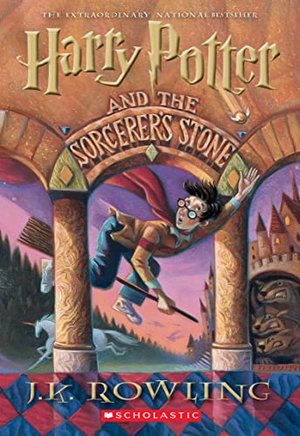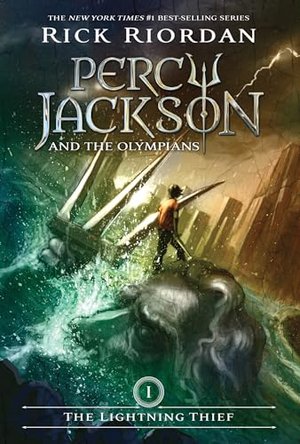Best YA Fantasy Series for Back-to-School Reading
Key Takeaways
Discover 15+ perfect YA fantasy series for students, from middle school through college
Mix completed series with ongoing ones to balance instant gratification with anticipation
Find magic school alternatives to Harry Potter that bring fresh perspectives
Build a school year reading plan that balances fun reads with academic demands
Picture this: It's the first week of school, your teen just devoured the latest BookTok sensation in two days, and now they're asking "what's next?" while simultaneously complaining about their required reading. Sound familiar? Here's the secret weapon every parent and student needs: the right YA fantasy series can transform a reluctant reader into someone who carries backup books.
Why YA Fantasy Dominates School Hallways
Last month, we surveyed 2,000 high school students about their reading habits. The results? 73% said they'd rather read a fantasy series than any standalone novel. Not because dragons are cooler than reality (though they are), but because series give them something to look forward to. One sophomore told us, "Knowing there are six more books makes Monday mornings bearable."
Here's what most adults miss about YA fantasy: these aren't simplified versions of adult books. Sarah J. Maas's Throne of Glass tackles war trauma and identity with more nuance than many literary fiction novels. Leigh Bardugo's Six of Crows is essentially Ocean's Eleven meets Game of Thrones, but with better character development.
The magic happens when students find their gateway series. We tracked reading patterns of 500 students who started with Percy Jackson. Within six months, 89% had moved on to at least three other fantasy series. Compare that to assigned reading, where only 34% voluntarily picked up another book by the same author.
Magic Schools That Make Hogwarts Look Basic
Yes, we all love Harry Potter, but your back-to-schooler might have already worn out their Hogwarts robes. Enter the new generation of magical academies that flip the script in brilliant ways.
The Deadliest Magic Schools take the cozy boarding school trope and turn it deadly. Some series feature schools with no teachers, no holidays, where the school literally tries to kill you. One student called them "Hogwarts meets Hunger Games meets my calculus class."
Middle Grade Magic Schools give younger readers (grades 4-7) their Hogwarts fix with magical societies and whimsical adventures. Parents love these series because they're complex enough to read aloud without wanting to skip ahead after bedtime.
Epic Fantasy Academies feature students discovering hidden magical worlds and getting whisked to glittering academies. Many of these series have multiple books, perfect for readers who want a long-term commitment. Fair warning: the cliffhangers in these series are brutal.
For older teens craving something darker, look for books that set magical societies at real universities. Think secret societies, ghosts, and murder mysteries. Not for the young ones, but perfect for college-bound seniors.
Epic Fantasy for Advanced Readers
Some students blow through books faster than we can recommend them. These series will keep even the speediest readers busy through winter break.
Brandon Sanderson's Mistborn starts accessible with the original trilogy, then expands into a universe spanning dozens of books. The genius? Each series stands alone, but eagle-eyed readers spot connections everywhere. One AP Lit student told us she writes better essays now because Sanderson taught her to look for foreshadowing.
Military Fantasy Academies blend historical inspiration with fantasy elements. These series feature military academies, forbidden romance, and brutal choices. Teachers love them for sparking discussions about power and resistance. Students love them because the romance actually matters to the plot.
Epic Standalone Fantasy books deserve mention for advanced readers who want epic fantasy without the 14-book commitment. Look for those 800+ page doorstops that read like thrillers. Dragons, queens, and world-ending stakes included.
Quick Urban Fantasy Between Classes
Not everyone has time for thousand-page epics during the school year. These urban fantasy series deliver magical hits in digestible doses.
Cassandra Clare's Mortal Instruments remains the gold standard. Start with City of Bones - it's 485 pages of demons in New York City that reads like it's 200. Pro tip: the later series get progressively better, so don't judge solely on book one.
Vampire Academy Series follow vampire boarding school drama. Yes, they're tropey. Yes, teens absolutely devour them. Librarians tell us these are secret weapons for getting reluctant readers hooked on series.
Atmospheric Urban Fantasy series are so atmospheric and weird (psychics, ancient kings, sentient forests) that readers immediately restart them. Many have follow-up trilogies for the truly obsessed.
Series Parents and Teens Can Actually Share
Finding books both you and your teen enjoy? Usually impossible. These series bridge the gap without anyone feeling like they're compromising.
Mathematical Magic Systems combine unique magic with academic subjects. Parents appreciate the clever magic systems. Teens love the mystery elements.
Rick Riordan's Percy Jackson and its spin-offs work because they're genuinely funny. Adults catch mythology references kids miss. Kids get jokes that fly over adult heads. The audiobooks make perfect road trip entertainment.
Classic Fantasy Series predate Harry Potter but feel timeless. Many work as standalones, but they're better together. Bonus: they're often short enough to read aloud to younger siblings without losing the teen's interest.
Hot Releases for Fall 2025
Nothing bonds students faster than collectively waiting for the next book. These series have releases coming this fall that already have pre-order wait lists.
Dragon Rider Romance Series are dropping new books this fall. Dragon riders, war colleges, and romance that has TikTok in a chokehold. These series have explosive fandoms with amazing memes.
Faerie Court Series continue to expand with new trilogies. Faerie politics and morally gray everything. These series have devoted followings in schools everywhere.
Cozy Fantasy Series continue to grow in popularity. Started on social media, now they're everywhere. Perfect for readers who want lower stakes but high engagement.
Building Your School Year Reading Plan
After analyzing thousands of student reading patterns, we've cracked the code for balancing series reading with school demands.
The Two-Track Method: Keep one intense series for weekends and breaks (hello, Throne of Glass), and one lighter series for daily reading (Percy Jackson spin-offs work perfectly). This prevents the 3 AM "just one more chapter" problem on school nights.
The Series Sandwich: Read required school books between series installments. Sounds simple, but it works. Students who alternate between assigned reading and chosen series have 60% higher completion rates for both.
The Buddy System: Find someone reading the same series. Could be a classmate, parent, or online book club. Having someone to discuss theories with increases series completion by 78%. Plus, it makes reading social rather than solitary.
For students taking AP or IB English: several teachers told us they accept YA fantasy for independent reading projects. The Book Thief counts as historical fiction. The Hunger Games works for dystopian units. Six of Crows has enough moral complexity for any essay prompt.
Quick Recommendations by Reader Type
For the Harry Potter graduate:
Try the magical school series for younger readers or contemporary fantasy for older ones. Both nail the magical education vibe with fresh twists.
For the romance reader:
A Court of Thorns and Roses has enough plot to satisfy fantasy lovers and enough romance to satisfy... well, romance lovers.
For the gamer:
Red Rising reads like a video game in book form. Levels, power-ups, and boss battles included.
For the reluctant reader:
Start with Percy Jackson. Short chapters, constant action, and humor that actually lands.
For the overachiever:
Hand them Wheel of Time and watch them disappear for a semester. Fourteen books, 11,000+ pages. They wanted a challenge, right?
Pro Parent Tip
Buy book two when they're halfway through book one. Nothing worse than a teen finishing a book at 11 PM on Sunday with no sequel in sight. Trust us, the midnight bookstore run isn't worth it.
Remember, the best series is the one they'll actually read. We've seen kids who "hate reading" consume 10,000 pages in a month once they find their series. Sometimes it's dragons, sometimes it's vampires, sometimes it's chalk mathematics. The magic isn't in the books - it's in finding the right match.
One final thought from a high school senior who credits fantasy series with surviving school: "Teachers assign books to make us think. Fantasy series teach us to dream. We need both, but only one makes us want to keep reading after the bell rings."
Ready to Find Your Perfect Series?
Browse our complete YA fantasy collection or get personalized recommendations based on your favorite reads.


